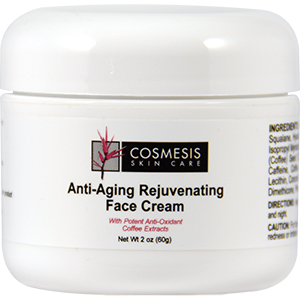Higher magnesium intake associated with reduced risk of metabolic impairment, diabetes
Friday, October 11, 2013. In an article published online on October 2, 2013 in the journal Diabetes Care, Boston researchers report an association between greater magnesium intake and a lower risk of developing diabetes over a 6.9 year average period.
"Several clinical studies of magnesium supplementation in those with and without diabetes indicate that magnesium supplementation can improve glycemic control, insulin sensitivity, and beta-cell function," Nicola M. McKeown of Tufts University and colleagues write. "However, the duration of these clinical studies has been relatively short (no more than 6 months) and most of the observational studies of magnesium intake in relation to insulin homeostasis or metabolism have been cross-sectional. As such, there is a relative dearth of knowledge on the long-term impact of magnesium intake on insulin metabolism."
The study included 2,582 men and women enrolled in the Framingham Heart Study Offspring cohort, a longitudinal study of cardiovascular disease. Between 1991 and 1995, the subjects participated in medical examinations that included oral glucose tolerance testing and dietary assessment, and were followed through 1998 to 2001, when they were re-examined.
Thirty-six percent of the participants were classified as having metabolic impairment, defined as impaired fasting glucose, impaired glucose tolerance, insulin resistance or hyperinsulinemia, at the time of the 1991-1995 examinations. Among those without the condition, 18% developed metabolic impairment by the end of the follow-up period. Those without metabolic impairment whose magnesium intake from food and supplements was among the top one-fifth of participants had a 37% lower risk of becoming impaired over follow-up compared with those whose intake was among the lowest fifth.
In subjects classified as metabolically impaired at baseline, 16.6% became diabetic by the end of follow-up. Having a magnesium intake that was among the highest fifth lowered the risk of developing diabetes in this group by 32% in comparison with an intake that was lowest. When the entire study population was considered, those whose magnesium intake was highest had approximately half the risk of becoming diabetic over follow-up than subjects whose intake was lowest.
"These findings support a role for higher magnesium intake in those at high risk of developing diabetes, and the need for large, randomized trials to confirm these observations," the authors conclude. |
 |
 |
|
In an article published online in Diabetes Care on April 12, 2012, researchers from Osaka General Medical Center and Osaka University Graduate School of Medicine in Japan report their finding of a two times greater risk of end stage renal disease among diabetics with decreased levels of magnesium compared to those with higher levels.
The study included 144 men and women with type 2 diabetic nephropathy and 311 with nondiabetic chronic kidney disease who were hospitalized between April, 2001 and December, 2007. Blood samples collected upon admission or shortly thereafter were analyzed for serum magnesium and other values. Low magnesium levels were defined as 1.8 milligrams per deciliter (mg/dL) or less.
One hundred two subjects with diabetic nephropathy and 135 with nondiabetic kidney disease progressed to end stage renal disease over a median follow-up period of 23 months. While progression to end stage disease among nondiabetics was similar among those with low and high levels of magnesium, for type 2 diabetics, a low magnesium level was associated with a 2.12-fold greater risk compared to the risk experienced by those with high magnesium levels.
The study is the first, to the authors' knowledge, to demonstrate the influence of reduced magnesium levels on renal outcome in men and women with advanced type 2 diabetic nephropathy. They remark that it is unclear why the mineral emerged as protective in diabetic kidney disease but not in nondiabetic kidney disease.
"We showed that hypomagnesemia independently predicts the progression to end stage renal disease in patients with advanced type 2 diabetic nephropathy," Yusuke Sakaguchi and colleagues write. "Our findings suggest that magnesium supplementation may be renoprotective in this population. The precise pathogenesis of magnesium deficiency in type 2 diabetic nephropathy should be further investigated." |
Life Extension® presents The Issue is Your Health, hosted by Michael A. Smith, M.D., Senior Health Scientist. Dr. Smith brings the pages of Life Extension Magazine® to life with his insight and thought-provoking opinion into the latest and most important issues that affect your health and wellness.
The Issue is Your Health is informative, fresh, smart, and stimulating. Be sure to watch it every month to help you create a health-conscious lifestyle.
In this issue, Dr. Ruth Westheimer, the renowned expert who virtually invented the modern sex therapy industry, discusses with Dr. Mike the myth that as we age we no longer can enjoy sex and offers ways to enhance your sex life at any age. |
|

|

|
|
Many individuals have tried a host of remedies in an attempt to soothe their digestive tracts, but some still have an issue with gastric distress—with resulting discomfort along the delicate lining of the esophagus. A novel solution is now available in the form of what scientists call raft-forming alginate. This blend of all-natural ingredients in Esophageal Guardian provides a unique approach to protecting esophageal tissue against harsh stomach acids.
The mechanism behind Esophageal Guardian involves the formation of a temporary physical barrier—or raft—between the stomach and the esophagus. The secret to this technology is what happens when alginic acid and potassium bicarbonate come into contact with gastric acids. Alginic acid forms a gel and potassium bicarbonate produces bubbles that get trapped in that gel—producing a floating foam layer that sits above the contents of the stomach. Immediately, two other natural ingredients in this formulation—calcium carbonate and magnesium carbonate—react with the stomach acid to create lift in the foam and make it firmer. Clinical studies show that this temporary foam barrier provides maximum support for delicate esophageal tissues. |
|

|
|
Studies have demonstrated the effectiveness of coffee compounds—Coffea arabica seed oil as well as Coffea robusta seed extract, which is known to contain both chlorogenic acid and caffeine—on aging facial skin.
When applied directly to facial skin...
- Arabica seed oil improved skin dryness and promoted the body's natural production of collagen and elastin.
- Coffea arabica supported improvement of the appearance of wrinkles, redness, and rough texture in a clinical trial—after just 12 weeks of twice daily application.
- Chlorogenic acid helped reduce the normal redness associated with prolonged ultraviolet exposure.
- Caffeine enhanced the visibility of skin smoothness and promoted a reduction in wrinkle depth—with clinical results seen in only 4 weeks.
These coffee extracts have been combined into the new Cosmesis Anti-Aging Rejuvenating Face Cream to help provide support against the visible signs of photoaging. |
|
|














